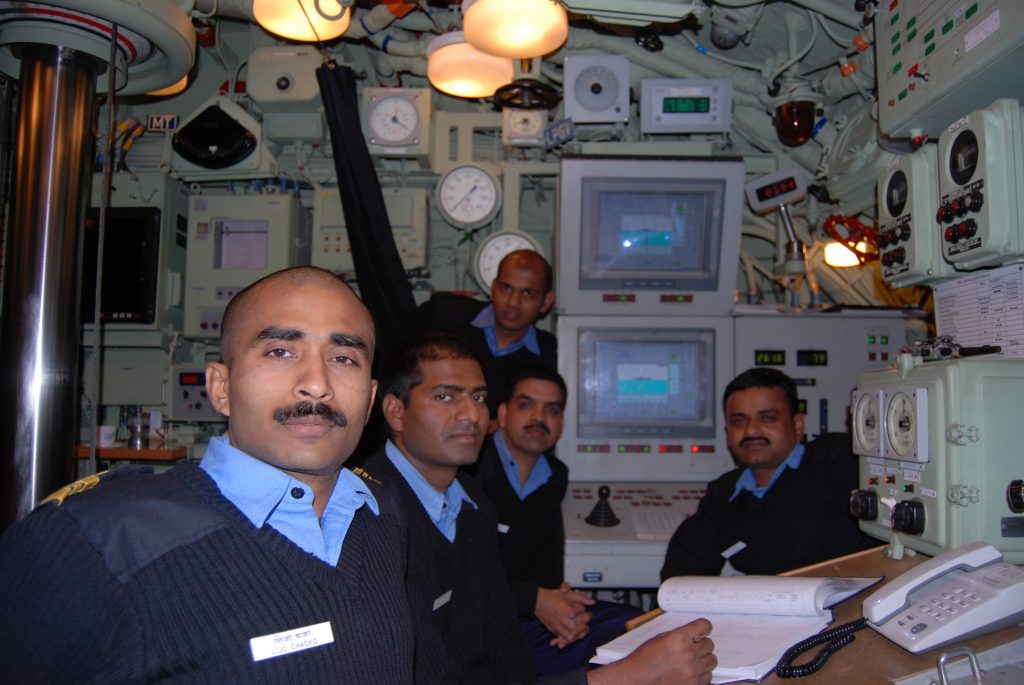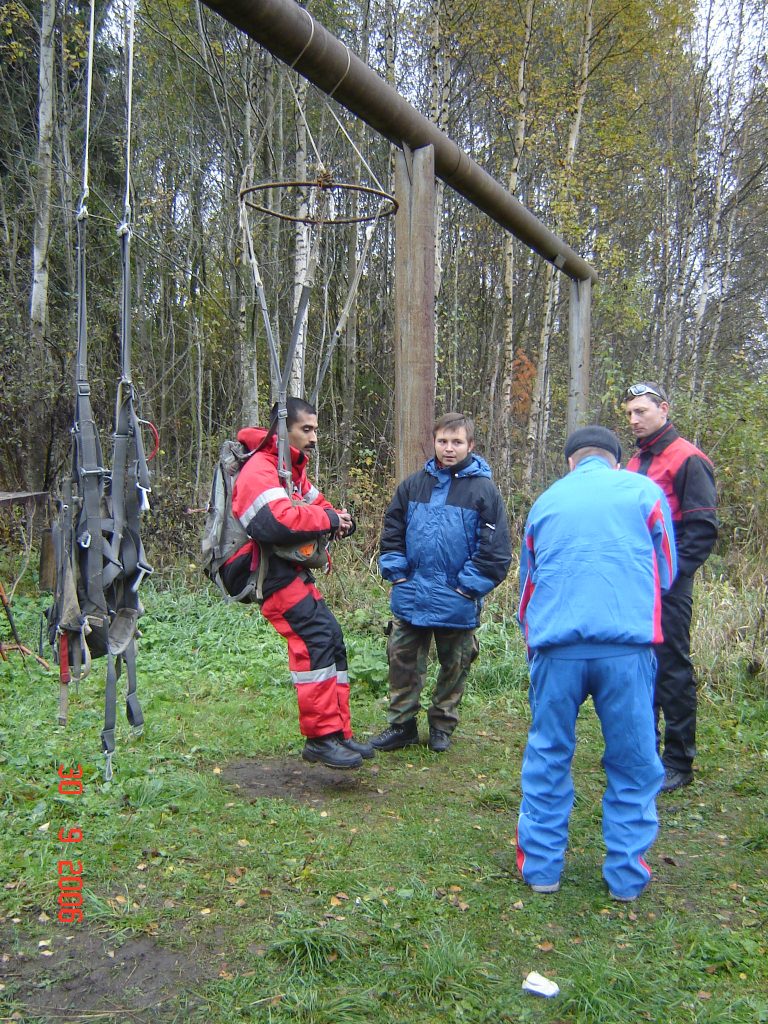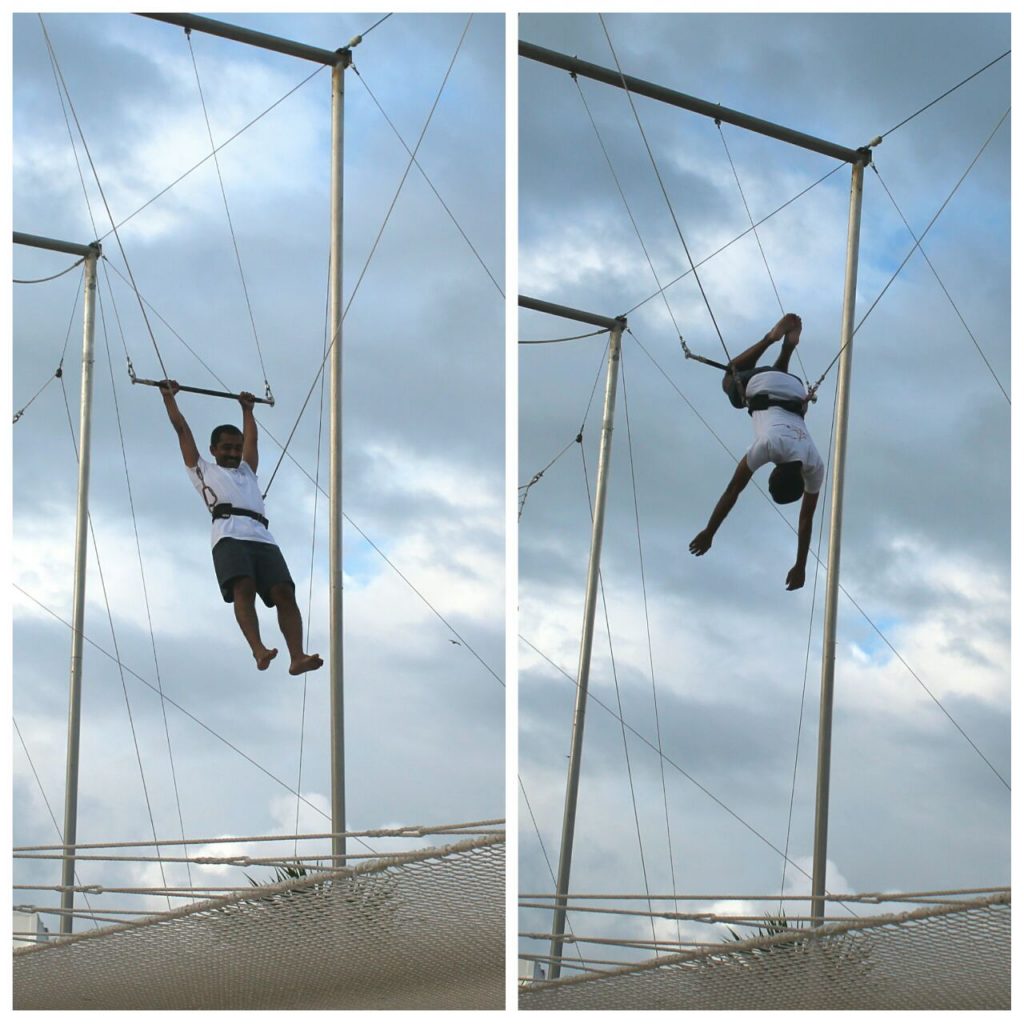We have immense respect for people who muscle up to protect our nation, away from their family and friends; be it in the Indian Army, Navy or Air Force! Which is why when we got a chance to interview this dashing retired marine engineer who served our nation for several years, we could not let that opportunity slip away. It was a chance to learn about the devotion a militarian has for their country, and explore what it takes to cultivate it so deeply that one is ready to live and die for the cause. Meet Commander Lijo Chacko (Retd), who was in the Indian Navy for two decades and is now working in the grassroot social spaces, bridging the gap between the corporates, government and NGOs.

Journey Into The Defence Service
Commander Lijo Chacko says, “I was born in a small town in Kerala, in Kottayam district. When I was 10, I got selected to join Sainik School. These schools were started by VK Krishna Menon, our first defence minister, with an intention of giving an opportunity for normal folks to join the defence services. The school pretty much made me. It was on a small hillock of 350 acres with no shortage of playgrounds, classrooms and brilliant teachers. During my time in this school itself, I was very clear that India’s defence services was where I wanted to be.”
He continues, “My first preference was to become a fighter pilot; I cleared all tests but as my 3rd and 4th vertebrae in neck are fused, I was not cleared on medical grounds. And since I didn’t get to fly, I said let me get into water then!”

The Walk Of A Submariner
Commander Lijo Chacko graduated from the Naval College of Engineering and eventually chose to deep dive with submarines! To understand this mighty choice, we probed him further. When asked whether any specific tests are required to become a marine engineer at sea, he shares that one of the most important qualifications for a mariner is to acquire a watchkeeping certificate. He says,
“Getting the watchkeeping certificate means, as an engineer on board, you are allowed to be at your post independently, and the ship or submarine is considered to be in safe hands. When it comes to submarines, not having any claustrophobia is a very important aspect. After all in a dived submarine, it’s like you are locked up in a closed chamber and one has to be comfortable in such spaces for long duration of time.”
“A submariner’s golden rule is that as long as the thought that you are in danger constantly runs in the back of your mind, then you are safe!”, he chuckles while we flinch!

Life Inside A Submarine
Commander Lijo spent almost 11 years on 6 Russian attack submarines. It’s not every day that people from the civvy street get to see a real submarine, except in movies; so we asked him to help us understand this gigantic underwater vessel in some detail.
He shares, “In our submarines, there are 3 main departments. One is called the mechanical engineering department, the other is the electrical department, and the third is the executive department. A submariner in the executive department would take care of things like communication, navigation, general administration and logistics. The electrical department handles the fire control systems, communication, the radar and the likes. And the mechanical engineer takes care of the stability of the submarine, diving, surfacing, high-pressure air system, hydraulics, the engine etc.”
Living on a submarine at a stretch for weeks together is definitely not easy; many challenges can occur, and there’s inevitable possibilities of death. Commander Lijo shares,
“There are times when some compartments in a submarine may face an emergency situation, and the only way to isolate the problem and fight it would be by getting into narrow or confined spaces, which could be flooding or has a fire raging. In some unfortunate situations, where things have gone beyond control, opening that compartment at a later point to let the person who went to fight the fire or control the flooding is not possible, because that could endanger the entire submarine. In such situations, the captain has to take tough calls and then bear that personal cross for life…”
We asked Commander Lijo where he finds the inner strength to deal with such difficult situations, for which he says, “For me, it was always the flag and the country. I focused on nothing else and had no other serious distractions. I could die for the country and that kept me going.”

What it Takes to Become a Submariner
For people aspiring to be a part of the submarine crew, Commander Lijo advises,
“Take as many responsibilities as you can. Don’t say this is your department and that is not yours. Keep at it and there comes a time when you will automatically become one of the most knowledgeable within the 75 metre steel capsule. So if the electrical motor is not yours, still try to be with the people working on it; try to understand how they are operating it or fixing it. The more knowledge you gather about as many equipment and systems as possible, the better your understanding of the submarine as a whole and who knows when that attitude of yours can help save lives.”
He further adds, “Look after each other; that’s how you become a family. They are all you have in the submarine.”

The Invisible Thread of the Social Fabric
Post the Naval life, Commander Lijo works in the social space, assisting various organizations by putting them in touch with the right people, guiding them in the right directions, pulling them out of stagnancy, and helping them to raise funds to expedite impact. He loves sharing stories and enjoys speaking to groups of people wherever and whenever possible, to encourage more people to take up social responsibilities.
He says, “Even during my school days and when I was in the Navy too, I knew that someday I wanted to be physically in the social space. Initially after the naval tenure, I was full time with an NGO working with illiterate youth to get them to a stage where they could make an informed choice about what they wanted to do in life. But after a few years, I realized that I would like to be part of the journey of many organisations doing good work where I could be of use that is. I like to do back-end work for multiple grassroots organisations.”
Commander Lijo also tries to request people that one doesn’t need to become Bill Gates to start contributing. You can do it in your own way wherever you are throughout your life. He says if we wait to give only after making a lot of money, the collateral damage could be very high!
Working for the welfare of the society is challenging at so many levels and also requires family support. Commander Lijo says, “A lot of the credit goes to my wife because when we discussed about the work I was planning to do, she supported me all the way. She pays the rent and puts the food on the table!”, he smiles.

Takeaway- Habits That Help
“I advise reading, physical exercise, and doing it all with discipline because, the act of developing the will power required to see anything through is not a one-time effort.”
Liked reading this? Then you might also like to read Princy Mehta – Cultivating A Culture Of Fitness In Goa Through Exercise & Dance.
If there’s any role model story that needs to be told, we will tell it. Write to us at contact@knowyourstar.com with your story lead, or contact us on Facebook or Twitter.